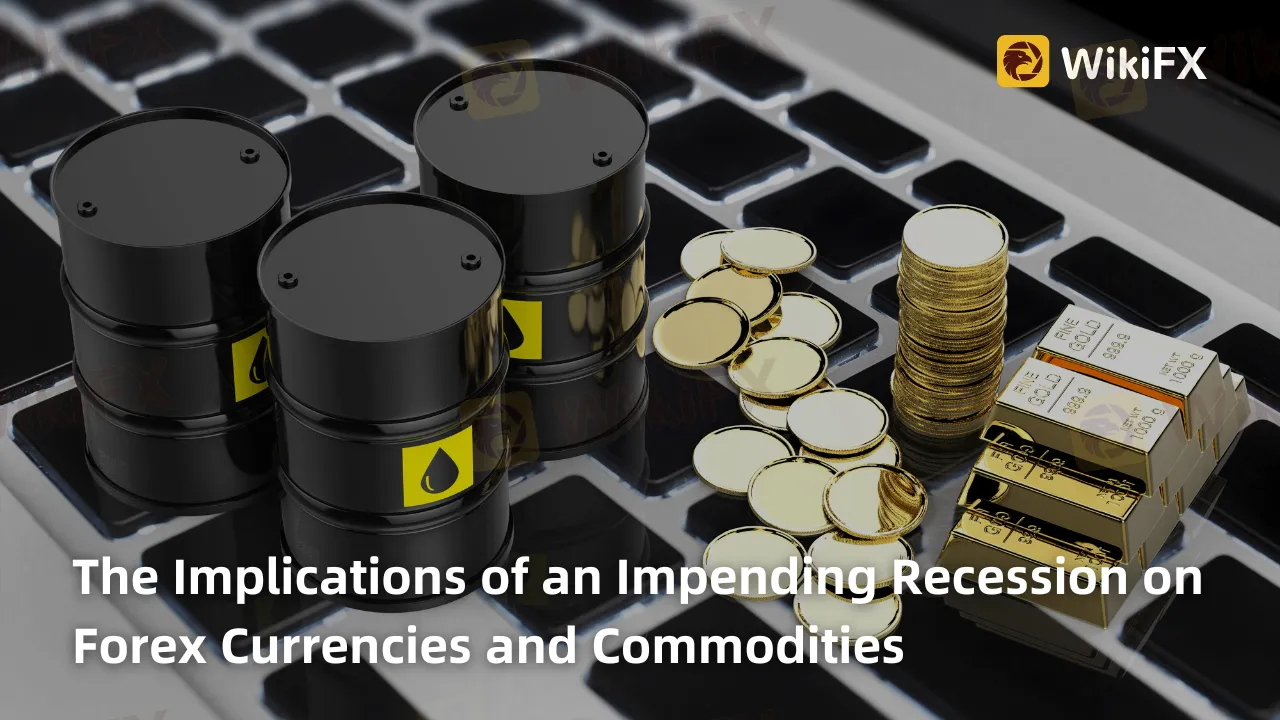Abstract:An impending recession warning from the FED can significantly impact forex currencies and commodities. Investors must understand potential effects on exchange rates and commodity prices. Strategies such as diversification, hedging, seeking opportunities, active management, and defensive investing can help navigate challenges and capitalize on opportunities during economic downturns.

When the Federal Reserve (FED), the United States central banking system, offers a warning about an impending recession, it may have substantial ramifications for foreign currencies and commodities. A recession is defined as a period of negative economic growth that lasts at least six months and is characterized by high unemployment, decreased consumer spending, and reduced corporate activity. This paper will go through the probable effects of a recession on the FX markets, commodities, and numerous tactics that investors may use to navigate these difficult economic times.
Forex Currencies
Exchange rates in the forex market are affected by a variety of variables, including economic development, interest rates, inflation, and geopolitical threats.
A recession may have numerous effects on foreign currencies:
A. Flight to Safety: When confronted with uncertainty, investors often choose safe-haven currencies such as the US Dollar (USD), Swiss Franc (CHF), and Japanese Yen (JPY). These currencies are regarded to be more stable and less dangerous, resulting in increased demand and value compared to other currencies.
B. Lower Interest Rates: In order to boost economic development, central banks often decrease interest rates in response to recessions. fewer interest rates make currency ownership less appealing since it provides fewer returns on interest-bearing assets. As a result, currencies with lower interest rates may fall in value relative to those with higher interest rates.
C. Inflation and Deflation: Recessions may cause deflation, or a general drop in prices when demand decreases and firms reduce their prices to entice customers. Deflation may lead a currency to appreciate by increasing its buying power. In contrast, excessive monetary easing by central banks to battle a recession may result in inflation, which may cause a currency to decline.
Commodities
Economic downturns have an impact on commodities such as gold, oil, and agricultural goods. The following are the effects of a recession on commodities:
A. Gold: During times of economic instability, gold is often seen as a safe-haven asset. As investors seek security from future currency depreciation and inflation, demand for gold rises, pushing up its price. Furthermore, lower interest rates make non-interest-bearing assets such as gold more appealing than interest-bearing assets.
B. Oil: Generally, recessions reduce worldwide demand for oil as economic activity slows and firms and consumers reduce energy usage. A decline in oil demand might cause a market glut, resulting in reduced oil prices.
C. Agricultural Commodities: The effect of a recession on agricultural commodities is more complicated since it is affected by variables such as weather, output levels, and government regulations. However, a recession may reduce demand for some agricultural products, especially those used as feedstock for industrial operations or luxury items, causing prices to fall.

Investment Strategies
Investors may use a variety of ways to handle a recession and its influence on currency currencies and commodities:
A. Diversification: Spreading one's investment portfolio over several asset classes, such as equities, bonds, currencies, and commodities, may help lessen the risks associated with economic downturns.
B. Hedging: Using financial products such as options, futures, and swaps, investors may reduce their exposure to currency and commodity risks. For example, an investor who has strong exposure to a certain currency may use a forward contract to lock in a future exchange rate, decreasing the risk of currency volatility.
C. Seeking Opportunities: Recessions may provide investors with an opportunity to purchase undervalued assets. During a recession, for example, some currencies may become undervalued as a result of economic weakness, offering opportunities for future profits when the economy recovers. Similarly, some commodities' prices may fall, providing ideal entry possibilities for long-term investors.
D. Active Management: Because market volatility increases during a recession, investors may profit by actively managing their portfolios, regularly watching market developments, and modifying their holdings appropriately. This might imply increasing exposure to safe-haven assets or currencies while decreasing exposure to assets that are more sensitive to economic downturns.
E. Defensive Investing: During a recession, investors might concentrate on defensive industries, which are less vulnerable to economic downturns. In the currency market, this may imply increasing exposure to safe-haven currencies, but in the commodities market, it may imply concentrating on necessary items with generally consistent demand even during economic downturns, such as food and utilities.
Conclusion
A FED recession warning might have enormous ramifications for FX currencies and commodities. To make educated judgments, investors must comprehend the possible effects on currency rates, commodity prices, and the larger economy. Diversification, hedging, exploring opportunities, active management, and defensive investment may help investors overcome the problems of a recession and perhaps capitalize on the chances that exist during these volatile times.
Download and install the WikiFX App on your smartphone to stay updated on the latest educational articles.
Download the app here: https://social1.onelink.me/QgET/px2b7i8n











